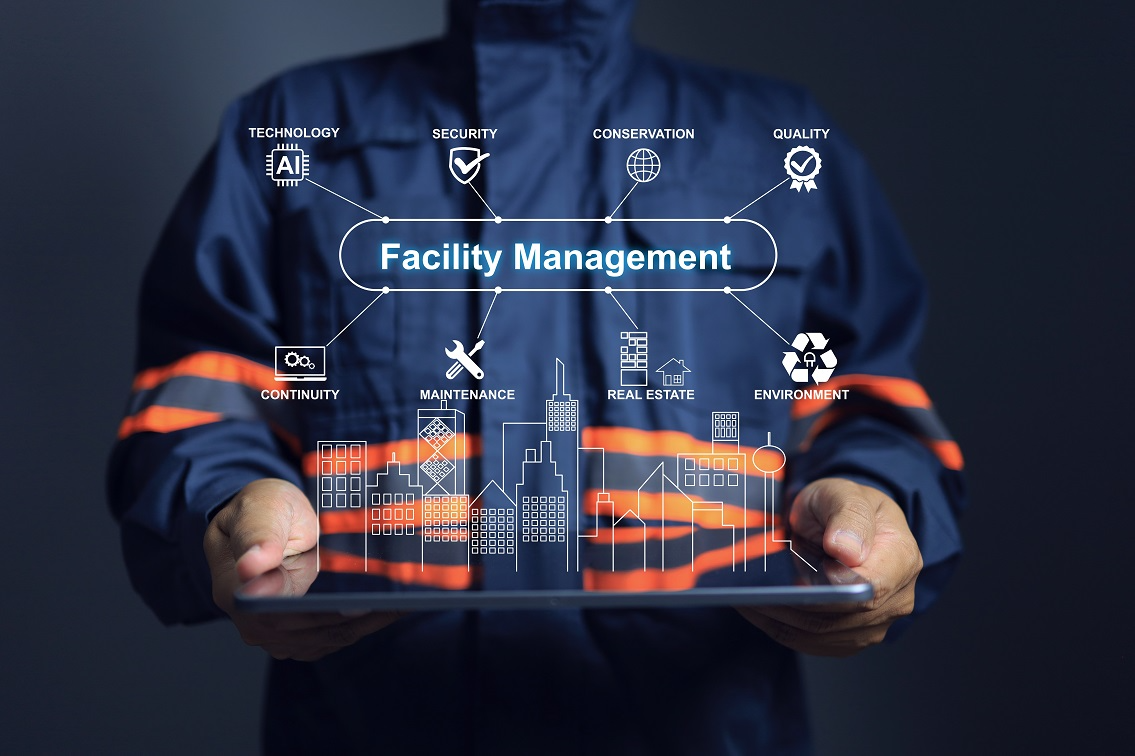Maximize Effectiveness and Safety And Security: Best Practices in Center Management
In today's swiftly advancing landscape, taking full advantage of efficiency and safety in center management has come to be an essential focus for companies aiming to improve functional efficiency. By incorporating wise innovation, prioritizing upkeep methods, and cultivating a society of safety, facility managers can significantly boost both efficiency and conformity.
Embrace Smart Innovation

Executing clever sensors and automation systems enables exact monitoring of environmental problems, tenancy levels, and tools performance. This data-driven technique not just informs decision-making but additionally supports anticipating upkeep, minimizing downtime and extending property life. Clever innovation enhances customer experience by producing flexible atmospheres that respond to the requirements of occupants.
Integrating smart systems likewise advertises sustainability initiatives, such as energy-efficient lights and a/c systems, adding to reduced carbon impacts. By accepting these developments, facility managers can make sure that their operations remain affordable, resilient, and straightened with modern sustainability goals. Inevitably, the shift towards clever innovation stands for a transformative action in redefining facility monitoring for a more reliable and sustainable future.
Prioritize Regular Upkeep
Routine maintenance is essential for making sure the durability and effectiveness of center procedures. A well-structured upkeep program not only prolongs the life of tools and framework yet additionally reduces the possibility of unexpected failures that can interfere with operations. By prioritizing regular upkeep, facility supervisors can recognize possible problems early, enabling timely treatments that lessen pricey repair work and downtime.
Developing a regular maintenance schedule is important. This must consist of normal evaluations, maintenance, and required repair services for all tools, HVAC systems, pipes, and electric systems. Using a digital upkeep management system (CMMS) can improve this procedure, giving monitoring and informs for upcoming upkeep jobs.
Additionally, promoting a society of liability among staff boosts the performance of upkeep initiatives. Training workers to report and recognize maintenance issues can bring about positive administration instead of reactive reactions. Additionally, recording upkeep tasks makes certain compliance with security guidelines and supplies valuable insights for future preparation.
Implement Safety Training Programs
An extensive security training program is necessary for cultivating a safe and secure functioning setting in any kind of center. Facility Management. Such programs outfit staff members with the understanding and abilities required to determine threats, execute security procedures, and react properly in emergency situations. By prioritizing safety and security training, organizations can significantly minimize the threat of crashes and injuries, consequently enhancing overall performance
To apply a reliable safety and security training program, it is essential to tailor the content to the certain needs of the center and its operations. This includes conducting a comprehensive danger analysis to recognize possible risks special to the office. Training should encompass a variety of topics such as appropriate equipment use, emergency situation emptying procedures, and first aid techniques.
In addition, it is essential to involve staff members actively during training sessions. Utilizing hands-on demonstrations and real-life situations can improve understanding and retention of safety techniques. Regular correspondence course ought to also be arranged to maintain safety recognition at the forefront.
Optimize Area Usage
Reliable room use is an essential element of facility management that straight affects operational effectiveness and cost-effectiveness. Organizations often battle with underutilized or chock-full rooms, causing inadequacies and boosted expenditures. To optimize room utilization, facility supervisors need to perform routine evaluations to determine exactly how spaces are currently being used and where renovations can be made.
Applying flexible office layouts, such as open office formats or modular furnishings, can dramatically improve flexibility to changing needs. Furthermore, leveraging modern technology, such as space administration software, can give useful understandings into occupancy patterns and help recognize underused locations.

Establish Clear Communication Channels
Optimizing room usage frequently reveals the demand for robust communication techniques within a center. Clear interaction networks are critical for promoting efficient cooperation amongst staff, maintenance groups, and administration. By establishing these channels, facility managers can guarantee that information moves effortlessly regarding area use, operational modifications, and safety and security procedures.
Implementing a multi-faceted interaction technique-- integrating click here electronic platforms, such as emails and group partnership devices, with in person interactions-- can significantly enhance interaction and details circulation. Routine meetings should be set up to talk about ongoing jobs, address worries, and share updates. Additionally, producing a centralized info hub, such as an intranet, enables employees to accessibility important documents and announcements quickly.
Furthermore, comments systems are necessary to gauge the efficiency of communication approaches. Urging staff to share their understandings can get more info result in renovations and cultivate a culture of visibility. Educating programs concentrated on interaction skills can further empower workers to share details clearly and efficiently.
Ultimately, establishing clear interaction networks not only takes full advantage of performance however likewise boosts safety by making certain that everyone is informed and straightened with the center's operational goals.

Verdict
In conclusion, the integration of clever technology, routine upkeep, detailed safety training, enhanced room usage, and reliable interaction networks jointly boosts performance and safety in center monitoring. These finest techniques offer as crucial parts for efficient facility monitoring.
In today's rapidly progressing landscape, maximizing performance and security in center management has come to be an essential focus for companies striving to enhance functional performance. By incorporating smart innovation, focusing on upkeep protocols, and fostering a culture of safety, center supervisors can considerably enhance both efficiency and conformity.To apply a reliable safety and security training program, it is critical to customize the material to the specific needs of the center and its operations. By developing these networks, facility supervisors can ensure that details flows seamlessly pertaining to space use, functional changes, and safety protocols.
In final thought, the combination of smart innovation, regular upkeep, detailed safety training, enhanced more info space application, and efficient interaction networks collectively enhances effectiveness and safety in facility administration. - Facility Management